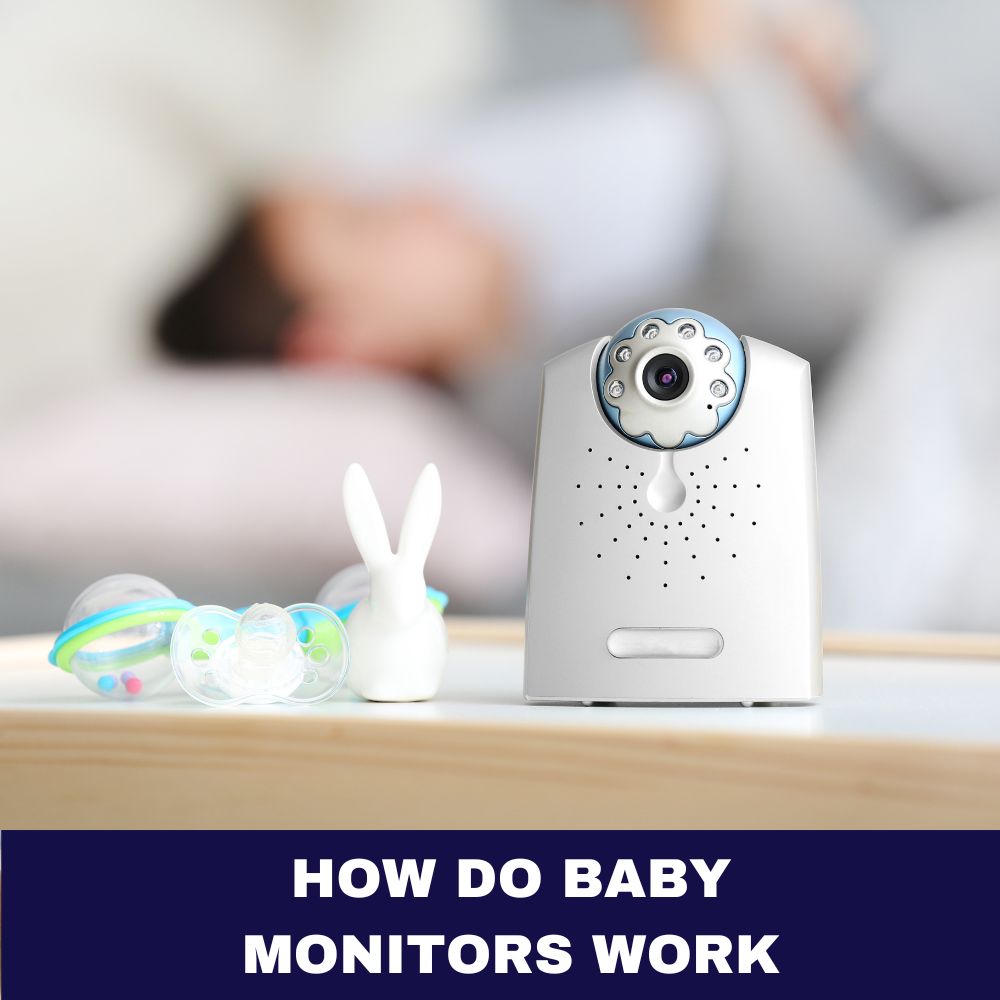As you gently rock your newborn in your arms, their tiny eyes drift shut, and you can’t help but marvel at their peaceful slumber. However, this tranquility is often short-lived, and before you know it, they’re wide awake and demanding your attention once again. The constant cycle of feeding, soothing, and rocking can leave even the most prepared parents feeling utterly exhausted. If you find yourself longing for a full night’s rest, you’re not alone. The question on every new parent’s mind is, “When will my baby start sleeping through the night?”

Introduction
Before we dive into strategies and timelines, let’s address what it truly means for a newborn to sleep through the night. For babies, this typically refers to a stretch of uninterrupted sleep lasting between 6 to 8 hours. It’s important to note that every baby is unique, and their sleep patterns can vary significantly. Some may achieve this milestone earlier, while others may take a bit longer.
Understanding Newborn Sleep Cycles
To better comprehend your newborn’s sleep needs, it’s essential to understand the fundamental differences between adult and newborn sleep cycles. Unlike adults, who experience longer periods of deep sleep, newborns cycle through various sleep stages more frequently. This means they often wake up multiple times throughout the night, transitioning from light to deep sleep, and back again.
During these frequent awakenings, your little one may require comforting, feeding, or simply a reassuring presence to help them drift back into slumber. It’s a perfectly normal part of their development, as their tiny bodies and brains are still adjusting to life outside the womb.
| Age | Total Sleep per Day | Nighttime Sleep Stretch |
|---|---|---|
| 0-3 months | 14-17 hours | 3-4 hours |
| 3-6 months | 12-16 hours | 5-8 hours |
| 6-9 months | 12-14 hours | 6-10 hours |
Signs Your Newborn is Ready to Sleep Through the Night
While every baby is different, there are a few telltale signs that may indicate your newborn is ready to start sleeping through the night:
- Consistent Weight Gain: As your baby grows and gains weight steadily, their ability to sleep for longer stretches increases.
- Regulated Sleep-Wake Cycles: If you notice your baby is developing more predictable patterns of wakefulness and sleepiness, it could be a sign they’re ready for longer nighttime sleep.
- Ability to Self-Soothe: Babies who can suck their thumbs, find their hands, or use other self-soothing techniques may be better equipped to fall back asleep independently.
While these signs can provide insight, it’s important to remember that every baby progresses at their own pace, and there’s no one-size-fits-all timeline.
| Sign | Description |
|---|---|
| Consistent Weight Gain | Baby is gaining weight steadily, indicating they are getting enough nutrition. |
| Predictable Wake Windows | Baby shows consistent patterns of wakefulness and sleepiness. |
| Self-Soothing Attempts | Baby tries to suck on hands, find pacifier, or engage in other self-soothing behaviors. |
| Longer Sleep Stretches | Baby starts sleeping for longer periods (4-5 hours) during the night. |
| Reduced Night Feedings | Baby doesn’t wake as frequently for feedings during the night. |
Factors Affecting When Babies Sleep Through the Night
Several factors can influence when your baby will start sleeping through the night. Understanding these variables can help you better manage your expectations and provide the appropriate support:
- Age and Development: As babies grow and mature, their sleep patterns tend to become more regulated. Most babies start sleeping through the night between 4 and 6 months, but some may take longer.
- Feeding Schedules and Habits: Breastfed babies may wake more frequently due to the faster digestion of breast milk, while formula-fed babies may sleep for longer stretches.
- Sleep Associations and Self-Soothing: If your baby relies on external cues or parental intervention to fall asleep, they may struggle to self-soothe and sleep through the night.
- Environmental Factors: Noise, light, temperature, and comfort levels in the sleeping environment can all impact a baby’s ability to sleep soundly.
By understanding these factors, you can tailor your approach and create an environment conducive to better sleep for your little one.
The Importance of Establishing a Bedtime Routine
One of the most effective strategies for promoting longer stretches of sleep is establishing a consistent bedtime routine. A predictable routine helps cue your baby’s body that it’s time to wind down and prepare for sleep. Here are some tips for creating a soothing pre-bedtime ritual:
- Stick to a consistent schedule: Aim for the same bedtime every night, as consistency is key.
- Incorporate calming activities: A warm bath, gentle massages, or lullabies can help signal it’s time for rest.
- Dim the lights: Lowering the lights in the nursery or your baby’s sleep space can promote melatonin production and sleepiness.
- Read a bedtime story: The soothing sound of your voice and the familiarity of a story can be comforting for your little one.
By consistently following a bedtime routine, you’re helping your baby associate specific activities with sleep, making it easier for them to settle down and drift off into dreamland.

Strategy 1: Swaddling for Better Sleep
Swaddling, the practice of snugly wrapping your baby in a thin blanket, can be a powerful tool for promoting longer periods of uninterrupted sleep. The gentle embrace of the swaddle mimics the cozy confines of the womb, providing a sense of security and comfort that can help your baby relax and sleep more soundly.
When swaddling, be sure to follow proper techniques to ensure your baby’s safety. Leave room for their hips and legs to move freely, and always place them on their back to sleep. Additionally, it’s important to transition away from swaddling once your baby shows signs of attempting to roll over, as swaddling at this stage can become a safety hazard.
Strategy 2: White Noise and Soothing Sounds
The womb is a surprisingly noisy environment, with the constant sounds of your heartbeat, breathing, and other bodily functions. After birth, these familiar noises disappear, and the sudden silence can be unsettling for your newborn. Introducing white noise or other soothing sounds can help recreate the comforting ambiance of the womb, promoting longer periods of peaceful sleep.
You can use a white noise machine, a fan, or even download soothing sound apps on your phone or tablet. Lullabies or nature sounds, like ocean waves or gentle rainfall, can also be effective in calming your baby and encouraging them to sleep through the night.
Strategy 3: Optimizing the Sleep Environment
Creating an ideal sleep environment can go a long way in helping your newborn sleep through the night. Here are some key elements to consider:
- Temperature: Maintain a comfortable room temperature between 68°F and 72°F (20°C and 22°C). Overheating or being too cold can disrupt your baby’s sleep.
- Lighting: Keep the nursery or sleep area dim, with minimal light exposure. Blackout curtains or shades can help block external light sources.
- Sound: While soothing sounds can be beneficial, minimize exposure to loud or startling noises that may wake your baby.
- Comfort: Ensure your baby’s sleep surface is firm, flat, and free of loose bedding or toys that could pose a suffocation risk.
By creating a sleep-friendly environment tailored to your newborn’s needs, you’re setting the stage for longer, more restful nights.
Strategy 4: Sleep Training Methods
Sleep training methods can be effective in teaching your baby the skills needed to fall asleep independently and sleep through the night. However, it’s important to approach these methods with care and consideration, as every baby and family situation is unique.
Some popular sleep training approaches include:
- Cry It Out (CIO): This method involves allowing your baby to cry for a predetermined amount of time before responding, gradually increasing the intervals between check-ins.
- Fading: With this approach, you gradually decrease your presence and involvement in your baby’s bedtime routine, allowing them to learn to self-soothe.
- Chair Method: This involves sitting in a chair next to your baby’s crib, providing reassurance without physical contact, and gradually moving the chair farther away each night.
While these methods can be effective, they may not be suitable for all families or situations. It’s essential to consult with your pediatrician and consider your personal beliefs and comfort levels before deciding on a sleep training approach.
Strategy 5: Dream Feeds and Feeding Schedules
Adjusting your baby’s feeding schedule can sometimes help promote longer stretches of sleep. One strategy is to implement a dream feed, which involves feeding your baby while they’re still asleep, typically between 10 PM and midnight. This can help them sleep through the night without waking up hungry.
Additionally, you may want to consider spacing out feedings during the day and gradually shifting them earlier, allowing for a longer stretch between the last feeding and bedtime.
It’s important to note that every baby is different, and some may wake more frequently due to their individual needs or feeding habits. Always consult with your pediatrician before making significant changes to your baby’s feeding schedule.
Strategy 6: Teaching Self-Soothing Skills
One of the keys to helping your baby sleep through the night is teaching them the art of self-soothing. Self-soothing refers to your baby’s ability to calm themselves and fall back asleep without external intervention, such as rocking, feeding, or being held.
Here are some tips to encourage self-soothing:
- Introduce a Transitional Object: A soft, cuddly toy or blanket can provide comfort and security, helping your baby learn to self-soothe.
- Offer a Pacifier: For some babies, the act of sucking can be soothing and may help them fall back asleep independently.
- Practice Gentle Fading: Gradually decrease your involvement in your baby’s bedtime routine, allowing them to fall asleep on their own with less assistance.
Remember, self-soothing is a skill that takes time and patience to develop. Be consistent and provide plenty of opportunities for your baby to practice this important ability.
| Sleep Association | Description |
|---|---|
| Rocking/Bouncing | Baby falls asleep while being rocked or bounced. |
| Nursing/Bottle Feeding | Baby falls asleep while being fed. |
| Pacifier | Baby relies on a pacifier to fall asleep. |
| White Noise | Baby associates specific sounds (e.g., vacuu |
Strategy 7: When to Seek Professional Help
While sleep challenges are common for new parents, there may be times when seeking professional help is warranted. Here are some situations where consulting a pediatrician or a certified sleep consultant could be beneficial:
- Persistent Sleep Issues: If your baby continues to struggle with sleeping through the night despite your efforts, it may be wise to seek expert guidance.
- Medical Concerns: If you suspect your baby’s sleep issues may be related to an underlying medical condition, such as reflux or colic, consult your pediatrician.
- Parental Exhaustion: If you find yourself overwhelmed and unable to cope with the sleep deprivation, reaching out for support can be invaluable.
Remember, there’s no shame in seeking help when it comes to your baby’s sleep and well-being. A professional can provide personalized guidance and support tailored to your unique situation.

Reasons Babies May Not Sleep Through the Night
While it’s understandable to hope for a full night’s rest, it’s important to remember that every baby is different, and some may take longer than others to achieve this milestone. Here are some common reasons why babies may not sleep through the night:
- Hunger: If your baby is going through a growth spurt or is simply hungrier than usual, they may wake more frequently for feedings.
- Developmental Milestones: As your baby reaches new developmental stages, such as rolling over or crawling, the excitement and discomfort associated with these changes can disrupt sleep patterns.
- Teething: The pain and discomfort of teething can make it challenging for your baby to sleep through the night.
- Illness or Discomfort: Colds, ear infections, or other illnesses can interfere with your baby’s ability to sleep soundly.
- Sleep Associations: If your baby has developed strong sleep associations, such as being rocked or fed to sleep, they may struggle to self-soothe and sleep through the night.
If you suspect an underlying issue is causing your baby’s sleep difficulties, don’t hesitate to consult your pediatrician for guidance and support.
| Reason | Description |
|---|---|
| Hunger | Baby wakes due to hunger, especially during growth spurts. |
| Developmental Milestones | New skills like rolling over or crawling can disrupt sleep patterns. |
| Teething Pain | Discomfort from emerging teeth can cause frequent awakenings. |
| Illness/Discomfort | Colds, ear infections, or other illnesses can interfere with sleep. |
| Sleep Associations | Reliance on external cues (rocking, feeding, etc.) to fall asleep. |
| Environmental Factors | Noise, temperature changes, or an uncomfortable sleep surface. |
| Sleep Regression | Temporary disruptions in sleep patterns as baby grows and develops. |
Managing Expectations as an Exhausted Parent
While the prospect of a full night’s sleep is tantalizing, it’s important to manage your expectations and not become discouraged if your baby takes longer to reach this milestone. The newborn phase is a time of constant change and adjustment, and sleep patterns can be erratic.
Remember, your baby’s sleep needs are unique, and what works for one family may not work for another. It’s essential to be patient, flexible, and kind to yourself during this exhausting yet fleeting stage.
Prioritize self-care by asking for help from family and friends, taking turns with your partner for nighttime duties, and finding ways to rest and recharge whenever possible. It’s also crucial to communicate openly with your partner, as sleep deprivation can take a toll on even the strongest of relationships.
Conclusion: The Bottom Line
As you navigate the uncharted territory of parenthood, remember that the journey to a full night’s sleep is a marathon, not a sprint. While the exhaustion of the newborn phase can be overwhelming, it’s crucial to be patient, consistent, and kind to yourself.
Implement the strategies outlined in this guide, but also trust your instincts and adapt them to suit your baby’s unique needs. Celebrate small victories, like a longer stretch of sleep or a successful bedtime routine, and don’t be discouraged by setbacks or regressions.
Above all, remember that this phase is temporary, and the sleepless nights will eventually give way to peaceful slumbers. Embrace the journey, cherish the precious moments with your little one, and know that a well-rested future awaits you both.
By staying positive, seeking support when needed, and prioritizing self-care, you’ll emerge from this challenging time as a stronger, more resilient parent. And when you finally hear the sweet silence of a sleeping baby, you’ll know that all the effort was worth it.
FAQ – When Do Newborns Start Sleeping Through the Night
How do I know if my newborn is getting enough sleep during the day?
Newborns generally sleep between 14 to 17 hours per day, but this sleep is often broken into shorter periods of 2 to 4 hours at a time. While there is no specific number of hours a newborn “should” sleep during the day, here are some signs that your baby is getting enough day sleep:
- Your baby appears content and relaxed when awake
- They are gaining weight appropriately
- They have periods of quiet wakefulness
- They settle relatively easily for naps and nighttime sleep
If your baby seems constantly overtired, fussy, or has trouble settling, it may indicate they need more daytime sleep. Pay attention to their cues and try to establish a flexible nap routine that works for your little one.
Is it okay to let my newborn cry for a bit before responding?
This is a personal decision that every parent must make based on their own beliefs and comfort levels. Many experts suggest that some controlled crying, combined with other soothing techniques, can be an effective way to teach newborns self-soothing skills.
However, it’s generally recommended to avoid letting a newborn cry for extended periods, as they have very basic needs and may become overly distressed. If you decide to try controlled crying, start with shorter intervals and gradually increase the time before responding. Always check on your baby and provide comfort if they become inconsolable.
Remember that newborns have limited abilities to self-soothe, so it’s essential t
Can swaddling be harmful to my baby’s development?
When done correctly, swaddling is a safe and effective way to promote better sleep for newborns. However, it’s crucial to follow proper swaddling techniques to ensure your baby’s safety and prevent potential developmental issues.
Here are some essential swaddling safety guidelines:
- Stop swaddling once your baby starts trying to roll over (typically around 2-3 months)
- Leave room for your baby’s hips and legs to move freely
- Use a thin, breathable blanket to avoid overheating
- Always place your swaddled baby on their back to sleep
If swaddled too tightly or for too long, swaddling can potentially lead to hip dysplasia or restricted movement. As long as you follow the recommended guidelines and transition away from swaddling at the appropriate time, it should not harm your baby’s development.
My baby seems to sleep better when held or in a carrier. Is this okay?
While holding or babywearing can be a soothing way to help your newborn sleep, it’s important to be mindful of creating sleep associations that may be difficult to break later on.
If your baby becomes accustomed to falling asleep while being held or worn, they may struggle to settle themselves independently in their crib or bassinet. This can lead to frequent nighttime awakenings and difficulties with self-soothing.
It’s generally recommended to occasionally allow your newborn to fall asleep on their own in their designated sleep space. This helps them learn to associate their crib or bassinet with sleep and can make the transition to sleeping through the night smoother.
However, if holding or babywearing works for your family and doesn’t seem to be creating problematic sleep associations, there’s no need to stop entirely. Just be mindful of gradually transitioning to more independent sleep as your baby grows.
When should I be concerned about my baby’s sleep patterns and seek professional help?
While every baby is different, and some variation in sleep patterns is normal, there are certain situations where it may be beneficial to seek professional help:
- Your baby consistently struggles to sleep for more than a few hours at a time, even after implementing various strategies.
- Your baby seems excessively fussy, irritable, or distressed, potentially indicating an underlying issue like reflux or colic.
- You or your partner are experiencing severe sleep deprivation, impacting your physical or mental health.
- Your baby’s sleep issues persist beyond the typical newborn stage (around 6 months).
If you have ongoing concerns about your baby’s sleep patterns, don’t hesitate to consult with your pediatrician. They can help rule out any medical issues and provide guidance or refer you to a certified sleep consultant if necessary.
Remember, seeking professional support is not a sign of failure – it’s a proactive step to ensure your baby’s well-being and your family’s overall health and happiness.












